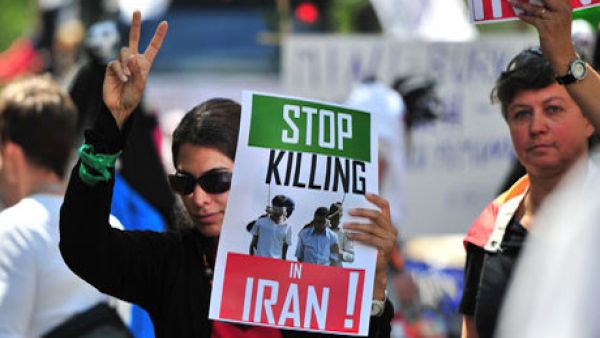Iran is well-known for its tight hold on the press and hatred for Saudi Arabia. But a new example of a coordinated media storm shows just how far the Islamic Republic is willing to go for a smear campaign.
Several Iranian-backed media outlets Tuesday reported on a "WikiLeaks" document that showed Saudi Arabia had bribed a UN human rights worker, Ahmed Shaheed, $10 million to provide unfavorable reports on Iran.

Small tip, Iran: If you're giving an organization credit for a false claim, you may not want to use hashtags the group will be checking regularly. It didn't take long for WikiLeaks to respond to the story circulating on social media.
@IranFrontPage Please show which cable this claim is based on. You fail to link to one of our cables in the article.
— WikiLeaks (@wikileaks) July 27, 2015Of course, there is no link to the WikiLeaks document because it doesn't exist. The stories were released on Iran-affiliated sites on Tuesday all around the same time, and The Guardian picked up on the country's efforts.
The UN in June 2011 named Shaheed the Human Rights Council special rapporteur on Iran. He's been the point person to investigate human rights violations in the country for the past four years, reporting on everything from its jailed journalists to high execution rates.
Unfortunately for Iran, no one would question for a second that Iran has issues granting basic freedoms. Not even a bribe would make that go away.
By Hayat Norimine







